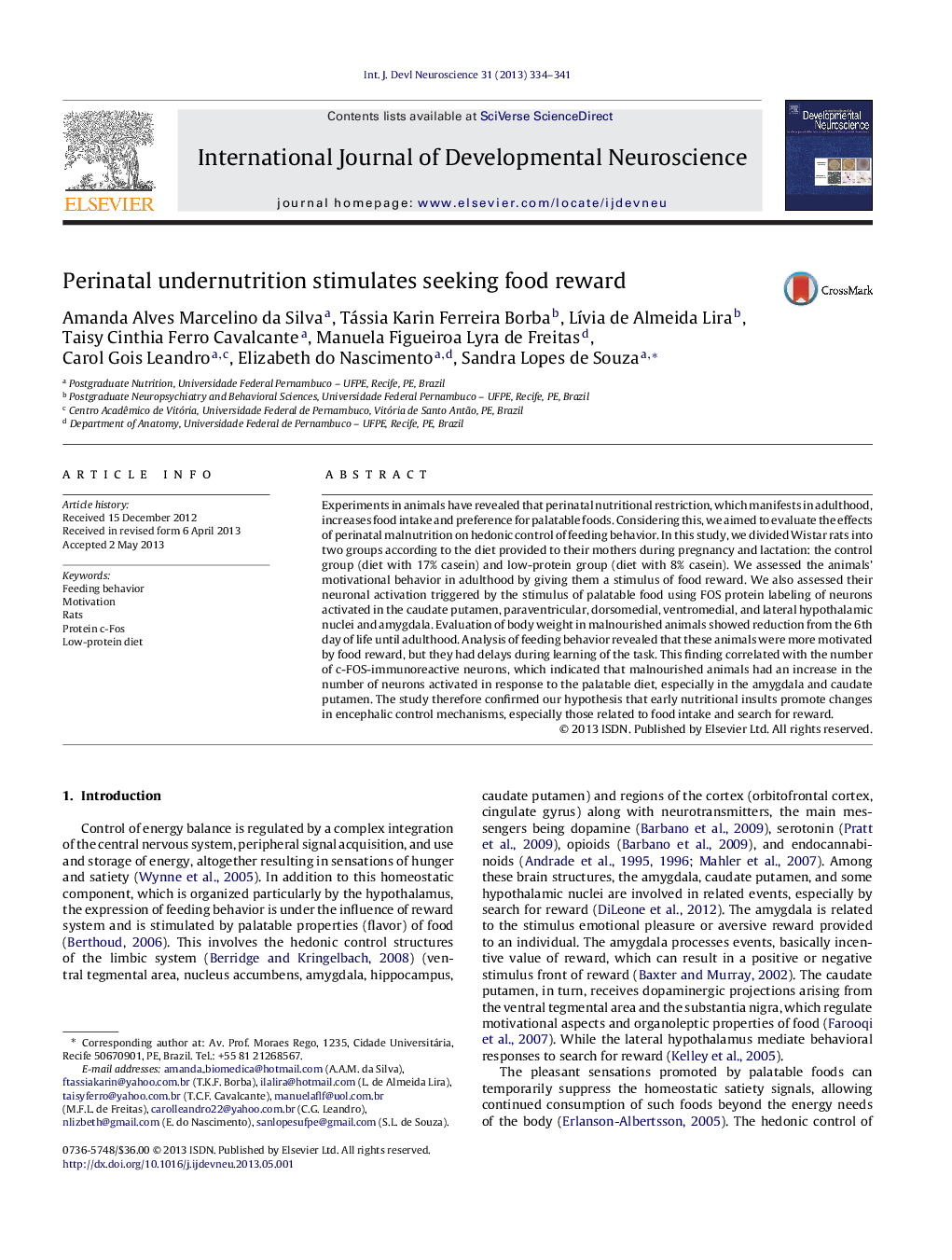| Article ID | Journal | Published Year | Pages | File Type |
|---|---|---|---|---|
| 2785983 | International Journal of Developmental Neuroscience | 2013 | 8 Pages |
•Undernutrition exacerbates perinatal motivation for food reward.•Hedonic areas are overactivated by undernutrition.•The amygdala and caudate have greater neuronal activation.
Experiments in animals have revealed that perinatal nutritional restriction, which manifests in adulthood, increases food intake and preference for palatable foods. Considering this, we aimed to evaluate the effects of perinatal malnutrition on hedonic control of feeding behavior. In this study, we divided Wistar rats into two groups according to the diet provided to their mothers during pregnancy and lactation: the control group (diet with 17% casein) and low-protein group (diet with 8% casein). We assessed the animals’ motivational behavior in adulthood by giving them a stimulus of food reward. We also assessed their neuronal activation triggered by the stimulus of palatable food using FOS protein labeling of neurons activated in the caudate putamen, paraventricular, dorsomedial, ventromedial, and lateral hypothalamic nuclei and amygdala. Evaluation of body weight in malnourished animals showed reduction from the 6th day of life until adulthood. Analysis of feeding behavior revealed that these animals were more motivated by food reward, but they had delays during learning of the task. This finding correlated with the number of c-FOS-immunoreactive neurons, which indicated that malnourished animals had an increase in the number of neurons activated in response to the palatable diet, especially in the amygdala and caudate putamen. The study therefore confirmed our hypothesis that early nutritional insults promote changes in encephalic control mechanisms, especially those related to food intake and search for reward.
